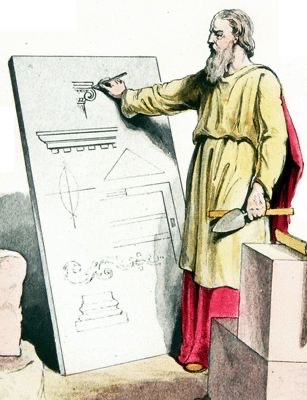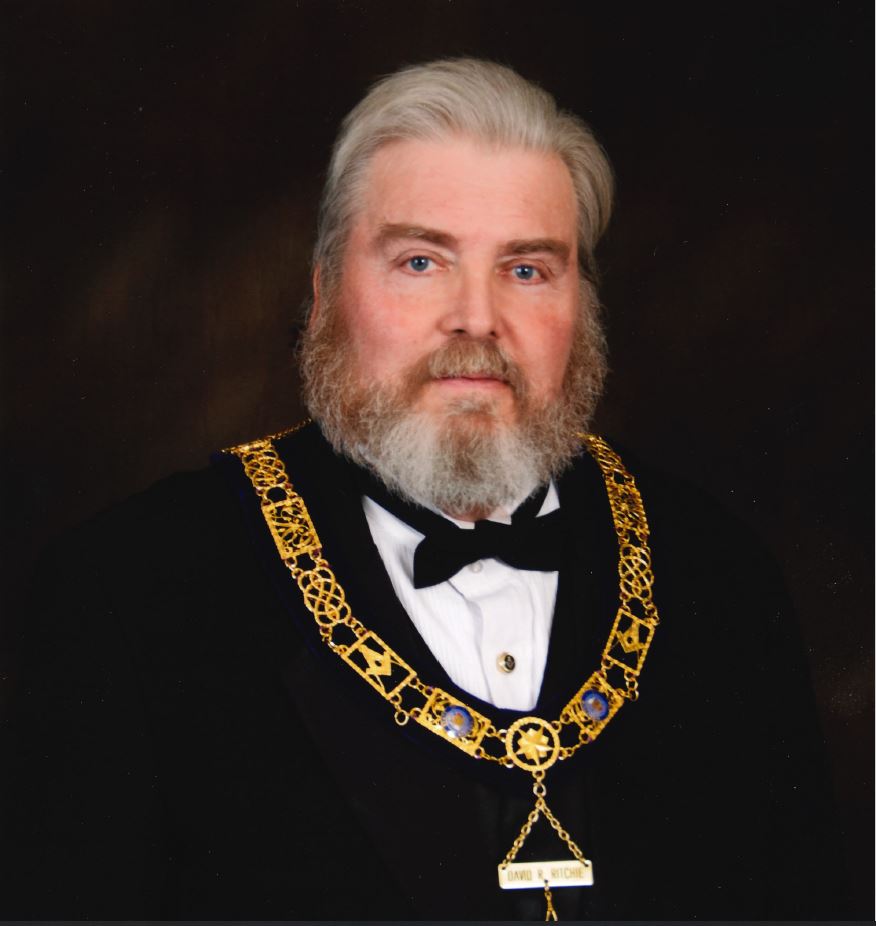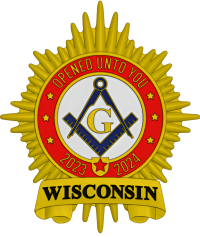The Hiramic Legend is woven around Hiram Abiff, the skilled artificer who was the son of a widow of the Tribe of Naphtali. There is no character in all of Freemasonry whose life story is so dependent on tradition as this celebrated architect of the Temple.
The earlier accounts of this artisan and builder will be found recorded in the 1st Book of Kings, 7:13, 14. His coming to work on the great Temple at Jerusalem is mentioned in a letter written to King Solomon by Hiram, the King of Tyre, and recorded in II Chronicles, 2:13, 14. Each of these references will enable the new Brother to have a clearer understanding of Hiram Abif as a figure in history.
There is no historical basis for this legend. The scriptures are silent as to how the Master Builder of the Temple met his death.
The tragedy of Hiram Abiff is a ritualistic drama. This legend is an allegory or parable in which the worthy Hiram is made a symbol of the righteous man in his passage through life. Attacked in youth by the allurements of pleasure and foley, and in manhood by the fluctuations and trials of life, he had last, in old age, sinks under the unavoidable hand of death, only to be raised by the Supreme Architect of the Universe to a blissful immortality in in that House not made with hands, eternal in the Heavens.
To pass through the second section of the third degree with the thought that you are portraying a historical event is to miss the meaning of the Degree.
The method of teaching the truths employed in the third Degree is one of the oldest religious rights known to man. It is older than Freemasonry, older than our civilization.
Something very similar took place during initiation into some of the so-called mystery cults which flourished in the Greco- Roman world.
We do not mean to imply that Freemasonry has any connection with the ancient mysteries, but it is a similarity in the teaching method. Operative Brother was certainly acquainted with a legend.
On cathedral walls they sculptured representation of biblical significance in a remarkably Masonic manner.
It is the climax of the degree. To understand and appreciate the riches of its profound meaning will be a prized possession as long as you live.
While there was a Hiram Abiff in history, the third-degree goes far beyond what history tales of him. Initially, you might have viewed Hiram Abiff simply as a man who was faithful to his trust, and then refuse to disclose certain secrets he had promised to keep.
In a more important sense, Hiram Abiff is a symbol of the human soul. If you have been troubled with the thought that some of the events of the drama of Hiram Abiff could not have happened you can ease your mind. If such events never happened in history, they are, nevertheless symbols of what happens in the life of every man.
In the ritualistic drama, the work in which Hiram Abiff was engaged to supervise is also the symbol of work we do when we supervise, organize and direct our life from birth to death.
The enemies he met are symbols of those lusts and passions which also confront us. His death represents the man who becomes a victim to those enemies, who is interrupted in his work and and who loses mastership of himself. He is buried under all manner of rubbish — demoralization, disgrace, and scorn.
He is then raised from death. Men can be raised from self-defeat to self-mastery through faith in the Supreme Being.
A men, in order to build and improve his spiritual temple, must do so in the presence of God.
In putting into practice the Brotherhood of Man and the Fatherhood of God, he will develop his character and personality in His image.
The legend of Hiram Abiff teaches all Freemasons that to betray a trust is a fate worse than death.
It reminds him that he should live each day steadfastly adhering to the principles of honor and honesty, patience and perseverance, fidelity, piety, and face.
The word Abif means “his father” or “my father” and the name would be correctly translated as “Hiram, my father,” the my father being a term of great respect. He was regarded as the father, in a patriarchal sense, of all his workmen on the Temple.
From “The Candid and Industrious Inquirer” District 2 Newsletter, Volume 1, Issue 2; Brother Frank During



